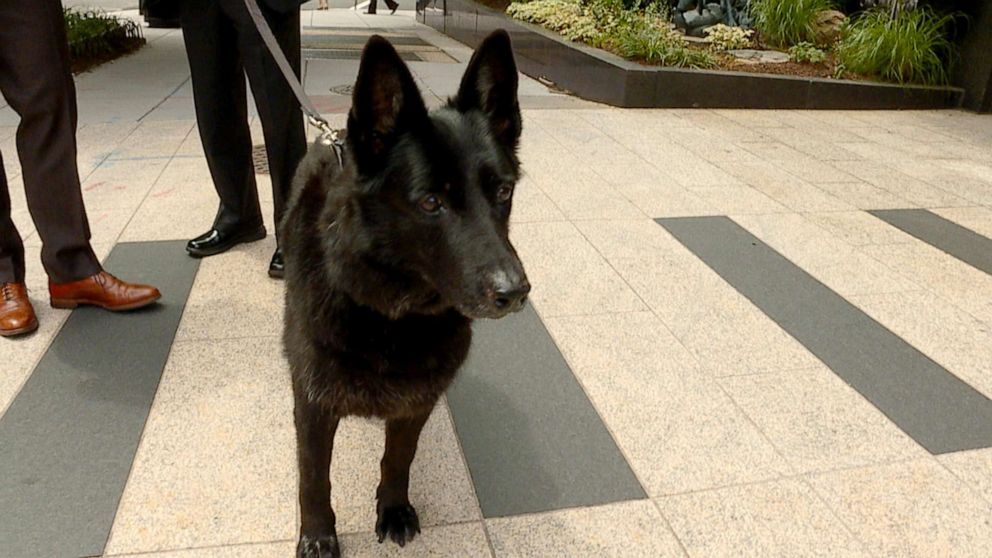Canine hero visits Capitol Hill amid ‘global landmine crisis’
Spotted roaming the halls of the U.S. Capitol on Thursday was a six-year veteran of one of the most dangerous jobs in the world.
Yankee, a land mine-detecting German shepherd, along with her handler, Perry Baltimore, a retired Army general, joined Yemen's ambassador to the U.S., Ahmed Bin Mubarak, to draw attention to what advocates are calling a “global land mine crisis.”
Decades after the use of land mines reached a peak in global conflicts, advocates say the use of anti-personnel mines -- responsible for the death and disfigurement of innocent civilians -- are back on the rise, particularly in African and Middle Eastern war zones.
Thursday’s event in Washington focused primarily on the crisis in Yemen, where by 2018, over 9,000 casualties have been reported as a direct result of land mines, according Mubarak, who added that the civil war in Yemen enters its fourth year, the concentration of land mines has reached its highest point since World War II.
Mubarak told ABC News his goal is to increase U.S. awareness for the crisis, and urge the State Department to continue funding land mine clearance in Yemen.

The U.S. has invested more than $37.5 million in conventional weapons destruction (CWD) activities in Yemen since 1993, and has increased CWD assistance in recent years to address land mine clearance, according to a recent State Department release.
“This urgent disaster needs to get more attention,” said Perry Baltimore, president of the Marshall Legacy Institute (MLI), a group focused on eliminating the effects of land mines. “Long after the bullets stop flying from war, people keep dying from land mines.”
The MLI, in partnership with the State Department, runs a program that has trained and deployed over 250 dogs like Yankee to clear land mines around the world.
Up to 1,000 square meters of land can be cleared by a dog in one day, according to Baltimore -- over 20 times what can be cleared by a human.
Each dog costs an estimated $25,000 to train, and the program is supported in large part by private citizens.



